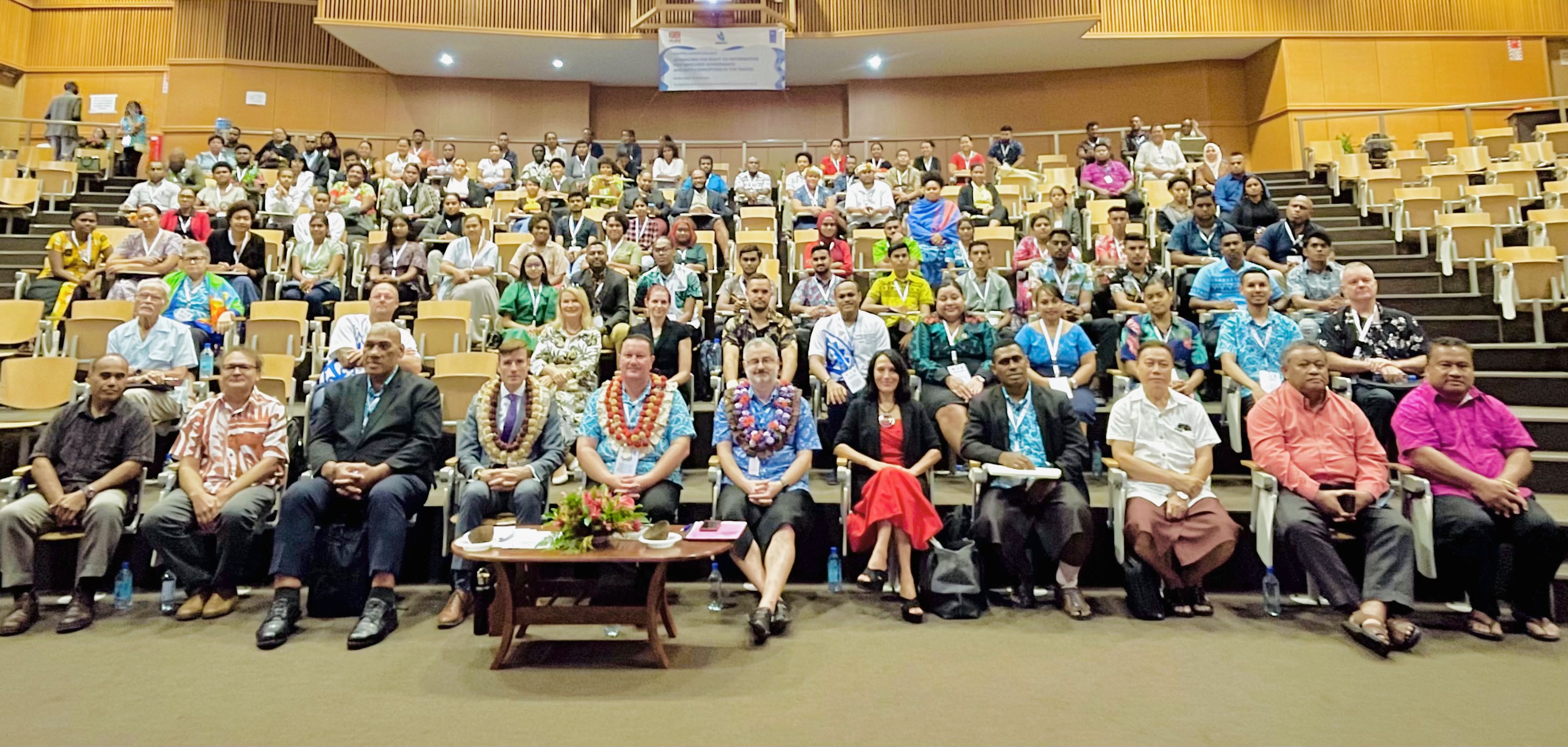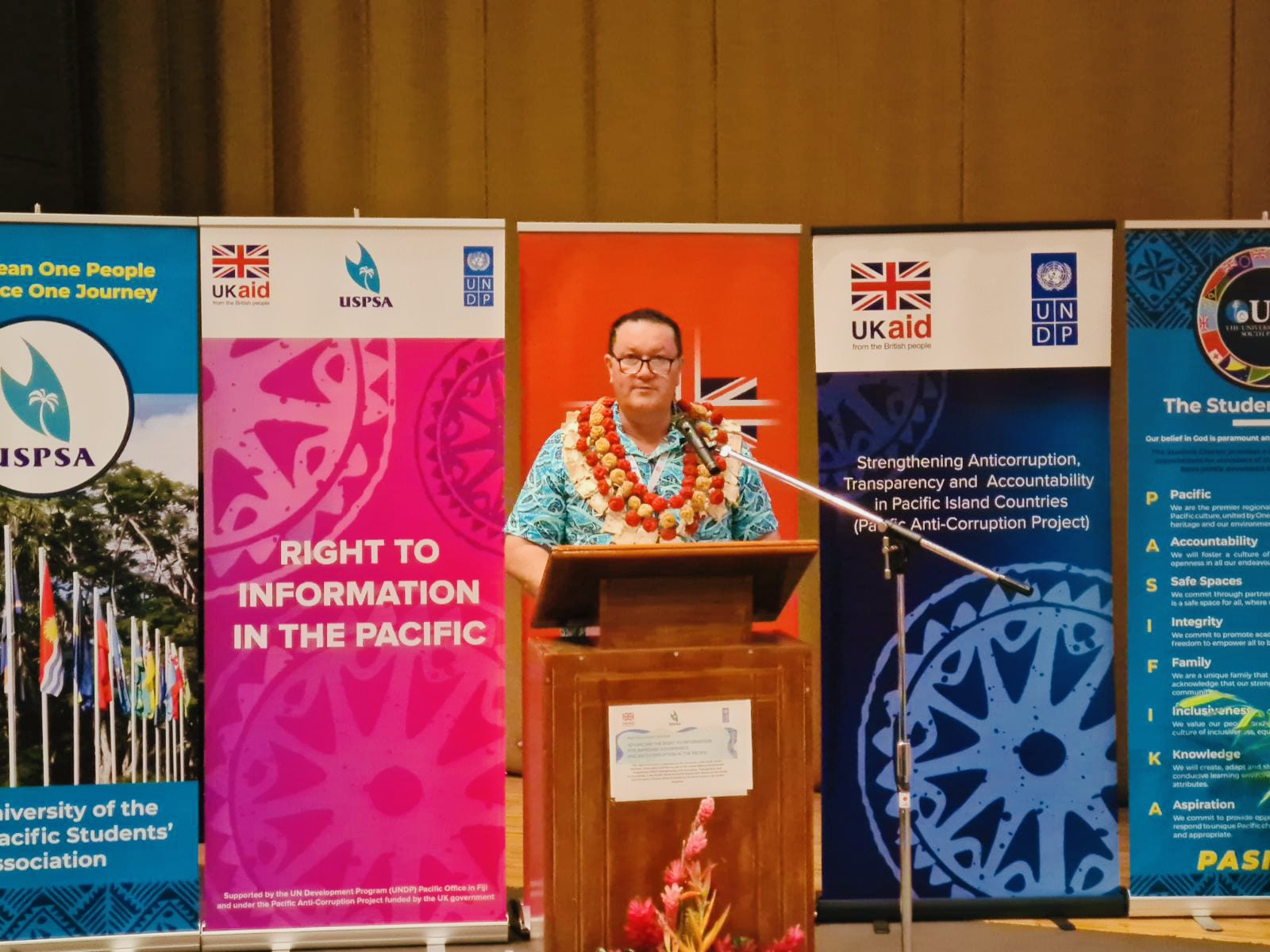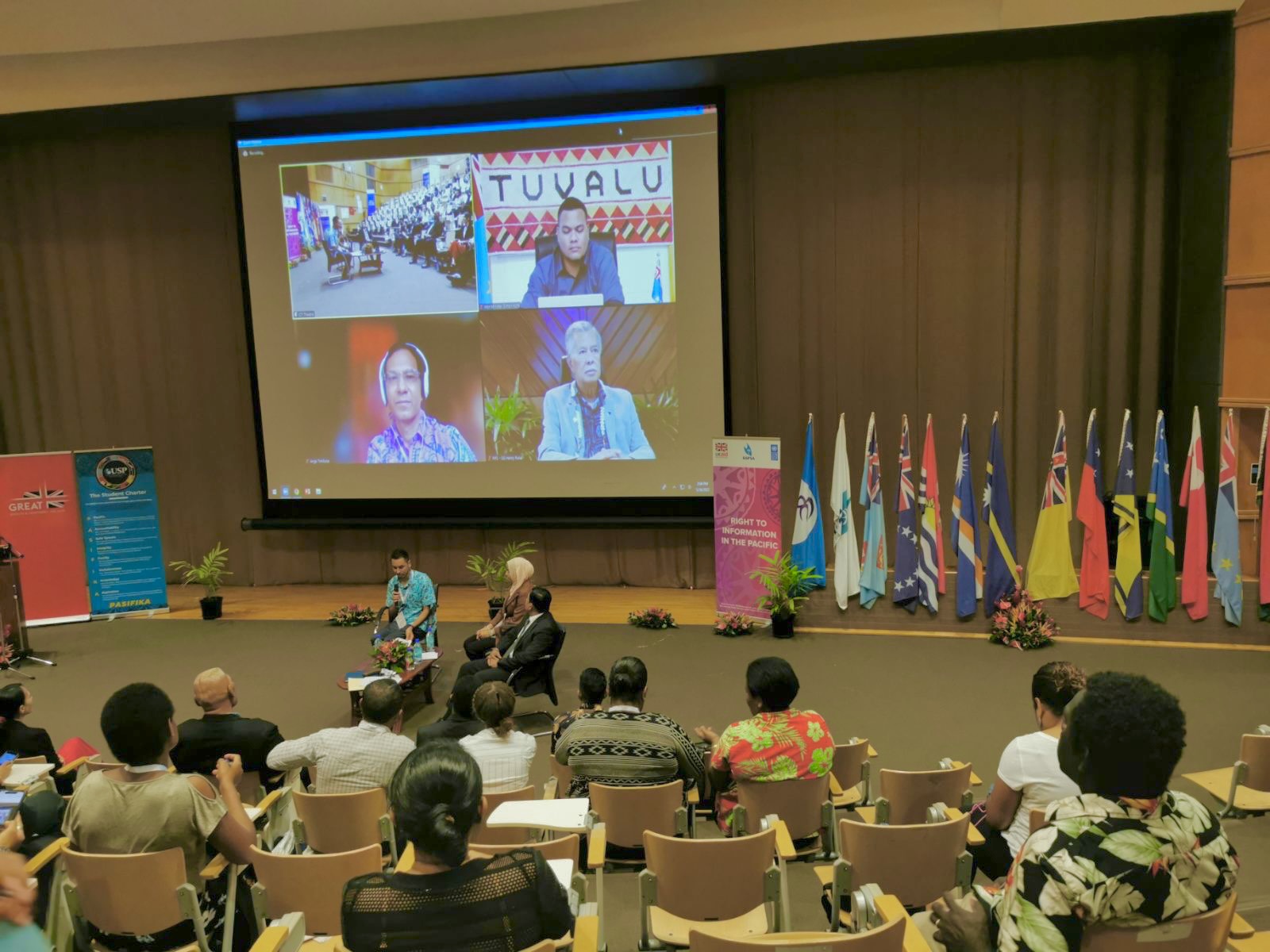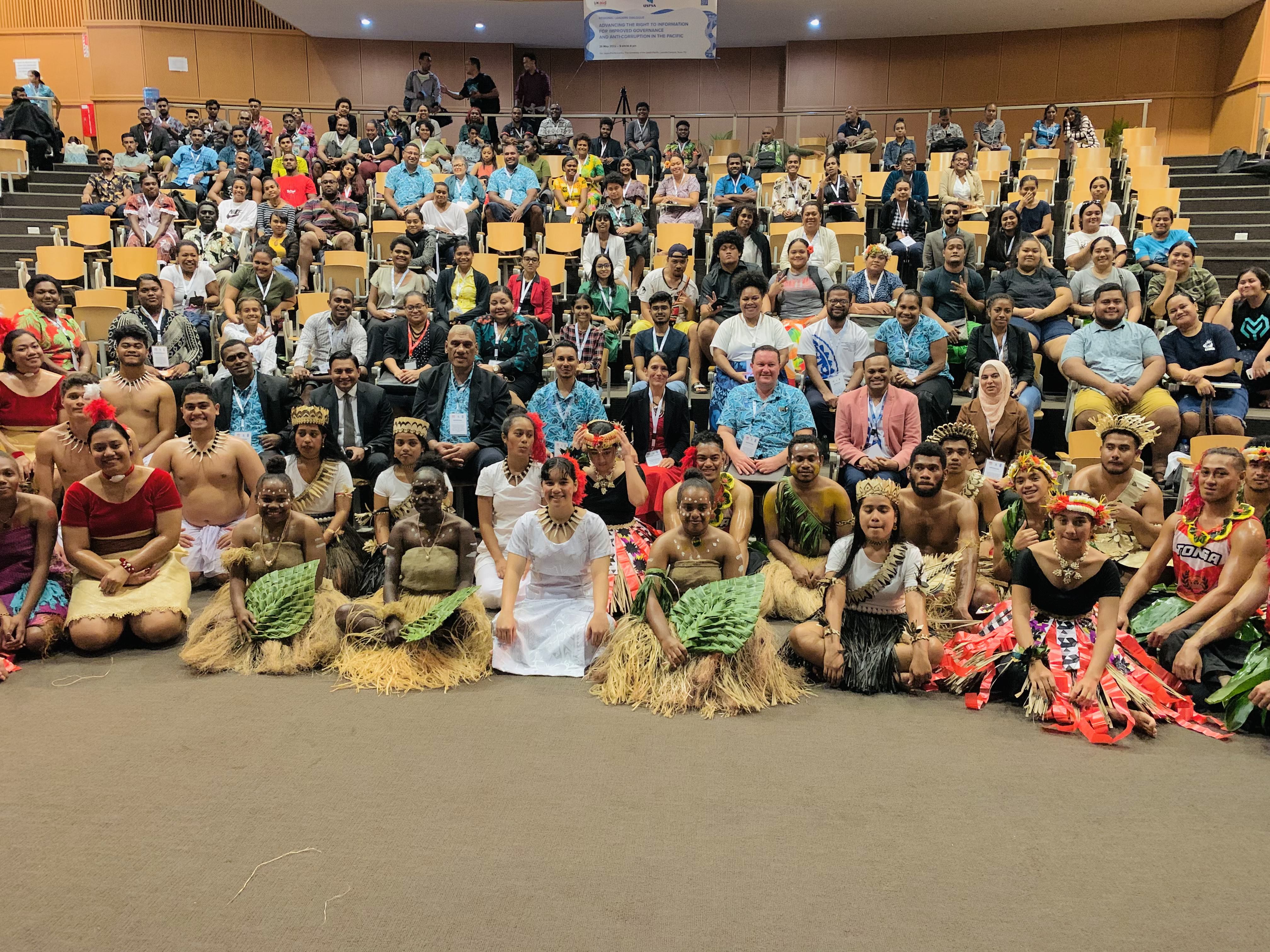- Pacific Youth Policy Platform
- Youth Advocacy for Inclusive COVID-19 Response and Recovery
- The Pacific Youth Summit 2021
- The Pacific Anti-Corruption Project
- Community Engagement Project- Fiji Elections 2022
- CELEBRATING 20 YEARS OF UNCAC
- Special Pacific Anti-Corruption Panel Discussion
- THE YOUTH VISION
- THE PACIFIC CONFERENCE ON GOVERNANCE
- Generating Open Data and Open Governance in the Pacific
- Regional Leaders Dialogue- A Success – Press Release
- Pacific Youth Policy Platform
- Youth Advocacy for Inclusive COVID-19 Response and Recovery
- The Pacific Youth Summit 2021
- The Pacific Anti-Corruption Project
- Community Engagement Project- Fiji Elections 2022
- CELEBRATING 20 YEARS OF UNCAC
- Special Pacific Anti-Corruption Panel Discussion
- THE YOUTH VISION
- THE PACIFIC CONFERENCE ON GOVERNANCE
- Generating Open Data and Open Governance in the Pacific
- Regional Leaders Dialogue- A Success – Press Release
Pacific Regional Leaders Dialogue – Advancing the Right to Information to improve governance and fight corruption

(26 May 2022, Suva, Fiji) – Pacific political and business leaders, young people and civil society groups met today for the Pacific Regional Leaders Dialogue to discuss the benefits and applications of the Right to Information (RTI) and generate ideas to enhance RTI at all levels to strengthen good governance and fight corruption in the Pacific region.
Broadly defined as the legal right of citizens to access information held by public bodies, RTI is a fundamental human right which keeps governments alert, responsive and honest. Wider and easier availability of public information means increased accountability and better policies for society, the economy and the environment. In particular, enhanced access and transparency mean that media and civil society organization are better placed to identify, report and combat corruption.
The high-level event is organized by the University of the South Pacific Students’ Association (USPSA) as part of the United Nations Development Programme (UNDP) Strengthening Anti-Corruption, Transparency and Accountability in the Pacific Island Countries project (also known as the Pacific Anti-Corruption Project) which is funded by the Government of the United Kingdom.

The event was focused on three main themes: RTI policy and the regulatory and institutional framework; the benefits and challenges of enhanced RTI; and the role that young people can play in accelerating progress. The primary context is RTI’s importance in regional social and economic development, specifically the Sustainable Development Goals, and the regional commitment made in 2021 by Pacific leaders to the Teieniwa Pacific Unity against Corruption Vision. Overall, the dialogue aimed to enhance cooperation and collaboration between government and non-governmental stakeholders through a whole-of-society approach involving academia, civil society, youth, women’s groups, and media organizations among other stakeholders.
High-level participants included the Hon. Simon Kofe, Minister for Justice, Communications and Foreign Affairs, Tuvalu; Mr. Henry Puna, Secretary General, Pacific Islands Forum; His Excellency Dr Brian Jones, British High Commissioner to the Republic of Fiji and Mr. Rashmi Aslam, Commissioner of the Fiji Independent Commission Against Corruption. The event, which included a performance by Pacific youth and students, also included workshops and panel discussions hosted by senior USP staff and students.
Hon. Simon Kofe, Minister for Justice, Communications and Foreign Affairs, Tuvalu said: “RTI reflects the principle that all government information is public information and should only be withheld for legitimate reasons such as national security, personal privacy or public order. Benefits include improved democratic processes, enhanced public sector efficiency, and more active citizen participation. I welcome this event and look forward to positive, long-term outcomes.”
His Excellency Dr Brian Jones, British High Commissioner to the Republic of Fiji said: “Corruption is a crime against society and accessible public information is powerful ammunition in the fight against corruption. I am proud to support this work, through UNDP and USPSA. The Right To Information is central to developing the transparent, efficient and accountable institutions that are essential to delivering sustainable social and economic benefits for everyone.”
Secretary General of the Pacific Islands Forum, Mr. Henry Puna said that “Contemporary governance and statehood in the Blue Pacific continues to evolve. ‘Governance’ is an incredibly broad and, at times, an abstract term. Yet it influences every aspect of our lives without us realising it. Overlay that with our traditional governance structures and practices, which at times are at odds with Western concepts of good governance, and there is conflict. Corruption disproportionately affects vulnerable populations, especially women, persons with disabilities, youth, children and the elderly. It is important that we are vigilant in pursuing and exposing anti-corruption activities, through political commitment and adequate resourcing, and events such as today.”

Levan Bouadze, UNDP Resident Representative said: “This event shows how powerful a whole-of-society approach is. When governments, citizens, academics and especially young people all start working together with a common aim, real progress towards better governance, increased accountability and reduced corruption becomes easier, faster and more democratic.”
Mani Mate, President of the USP Students Association said: “USPSA is proud to be working with UNDP to foster Pacific cooperation and give young people in the Pacific region voice on very important governance issues.” He also welcomed the timeliness of this event, “a reflection of the strong commitment by our resilient youth leaders to fulfil the 2030 Agenda, specifically SDG 16 in support of building a peaceful, just, and inclusive societies through the promotion of good governance”.
For more information, or media interviews please contact:
Setaita Tavanabola, Knowledge Communications Associate – UNDP Pacific Office in Fiji. E: Setaita.tavanabola@undp.org
